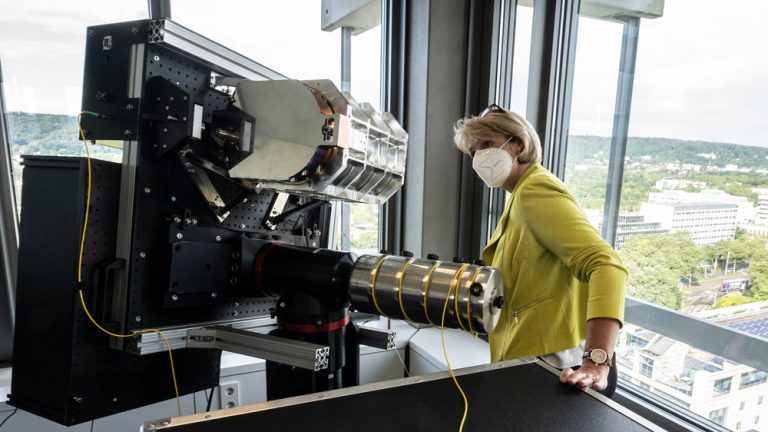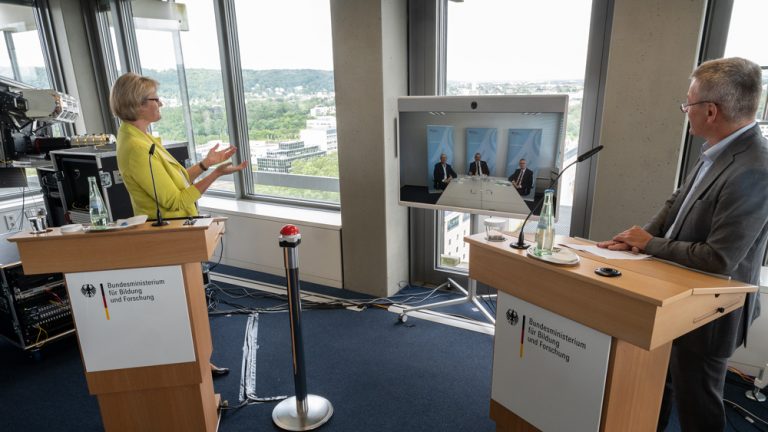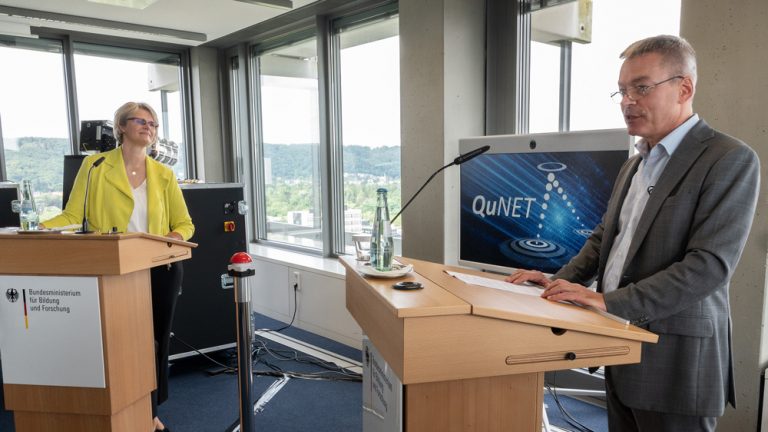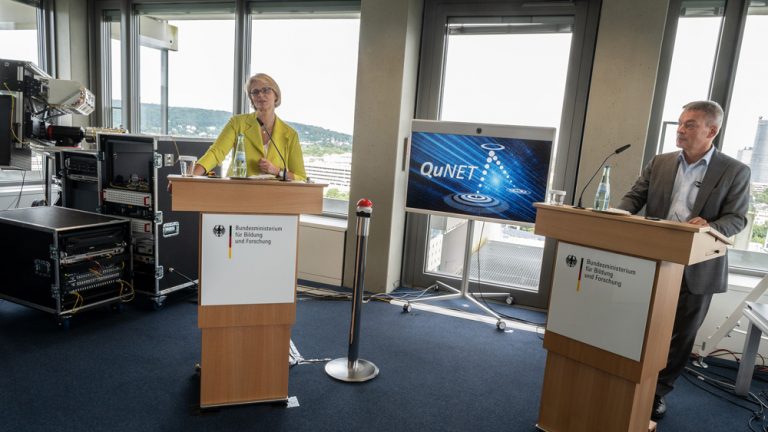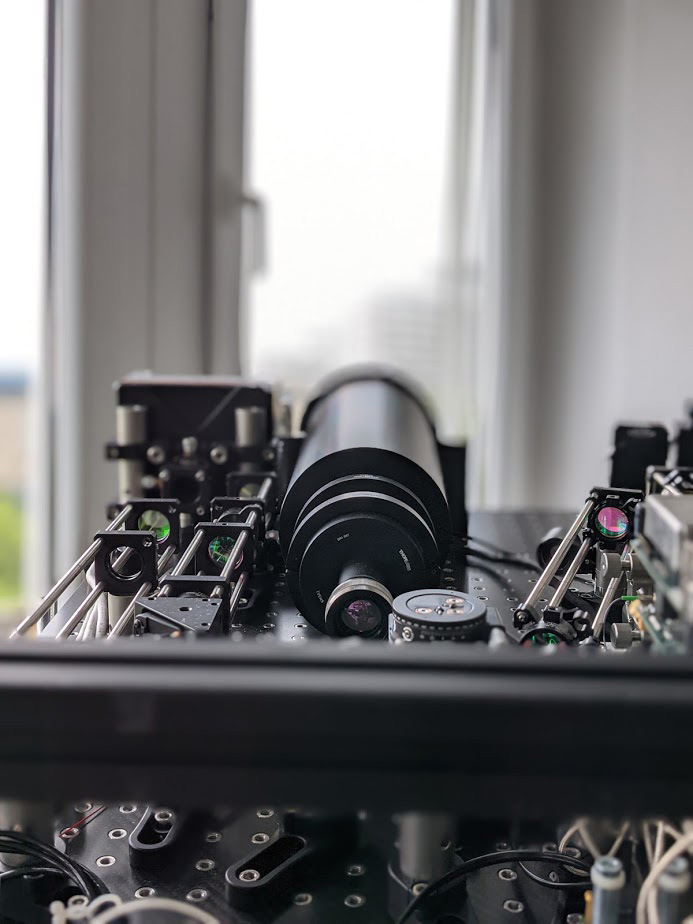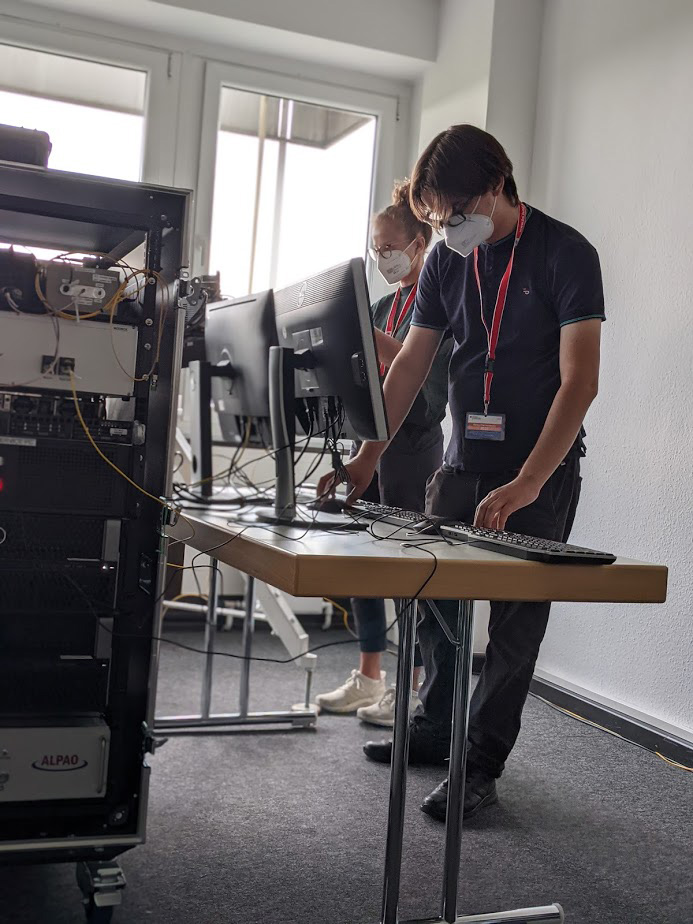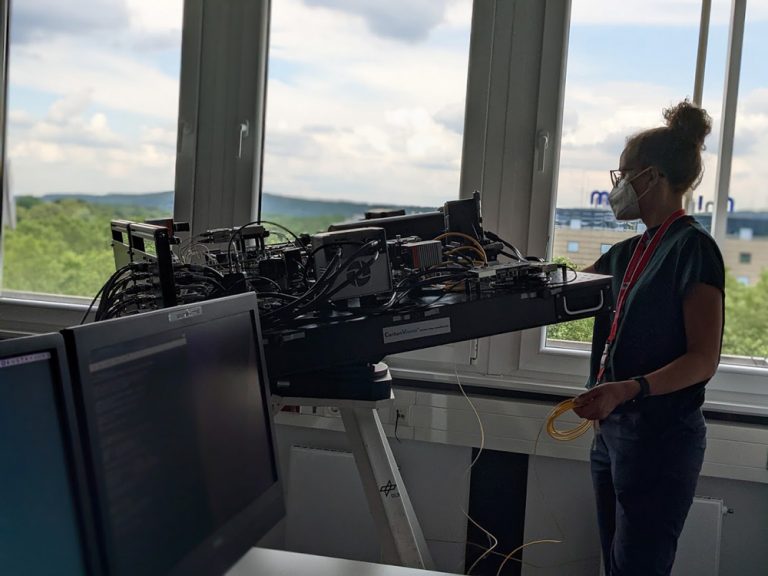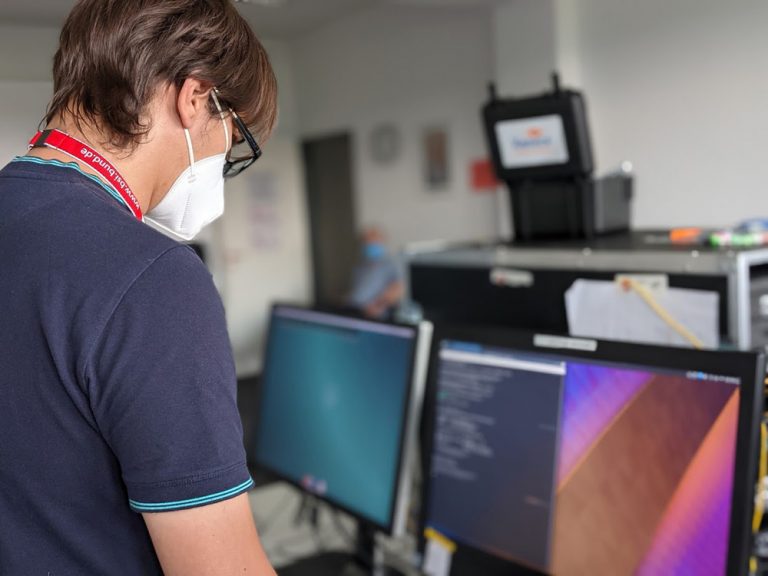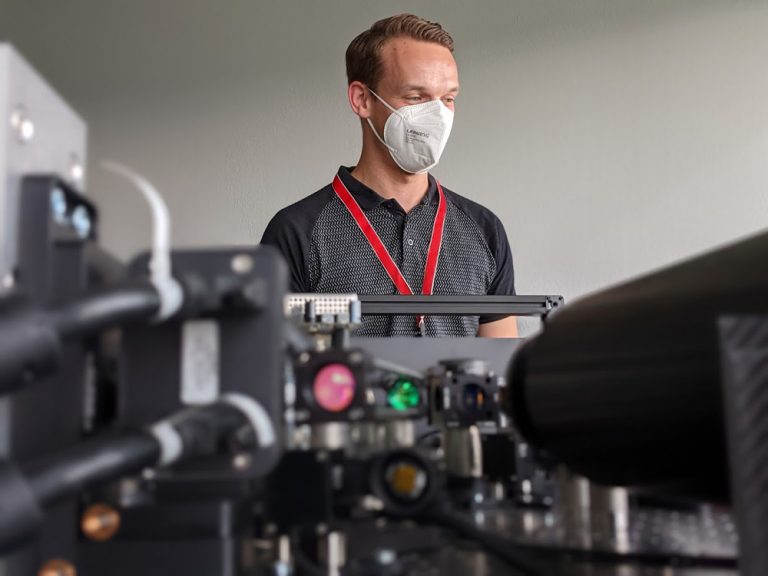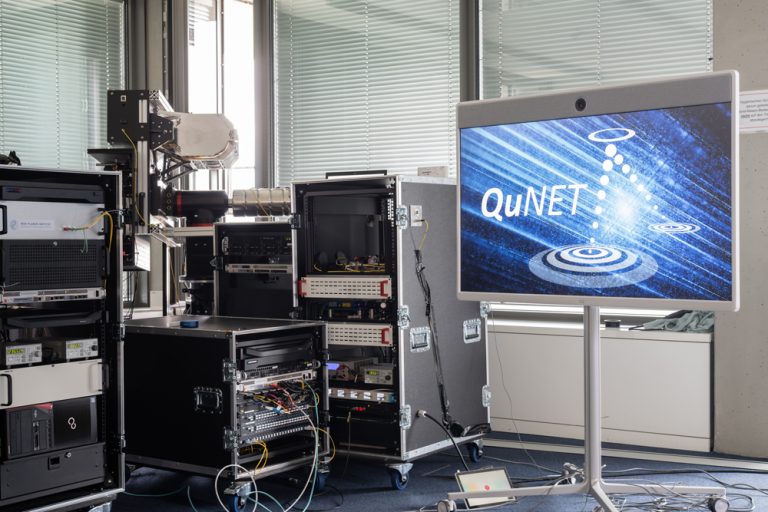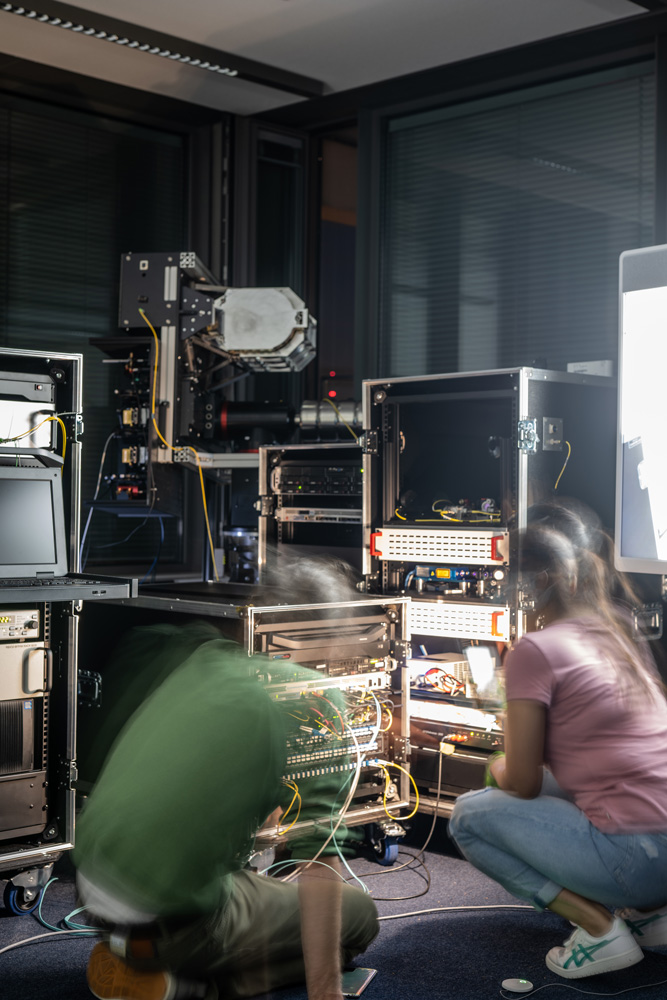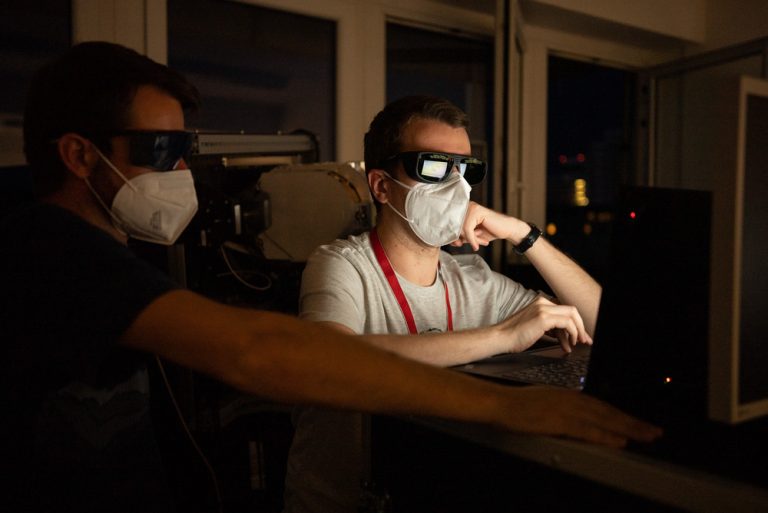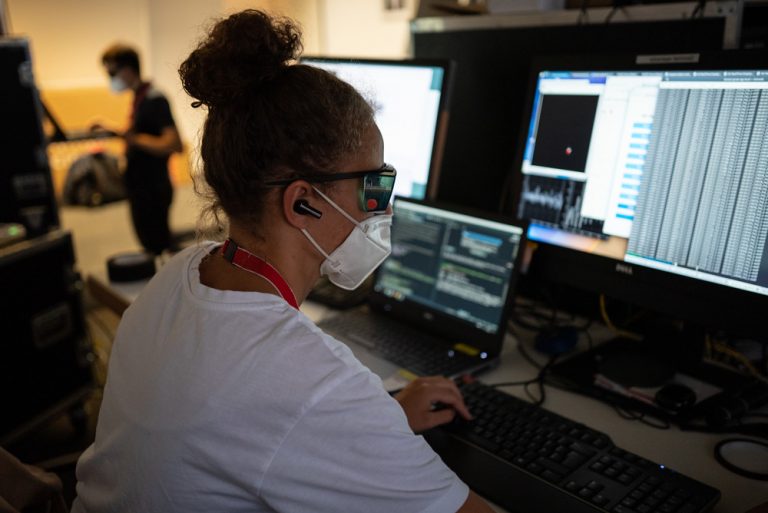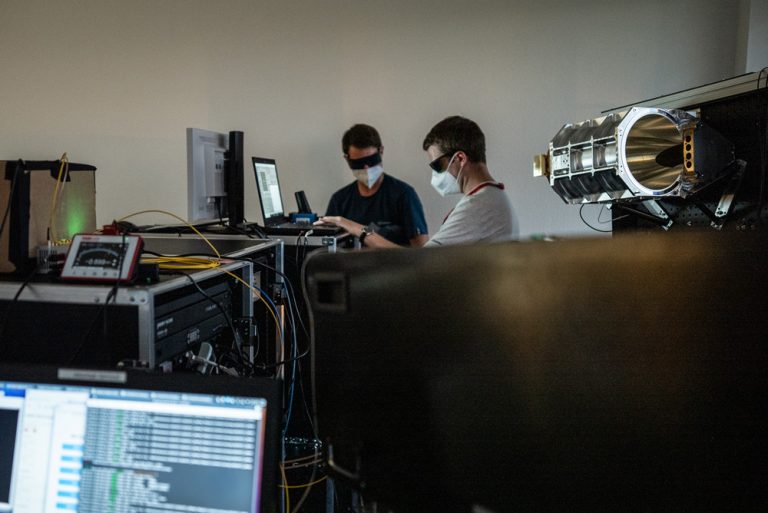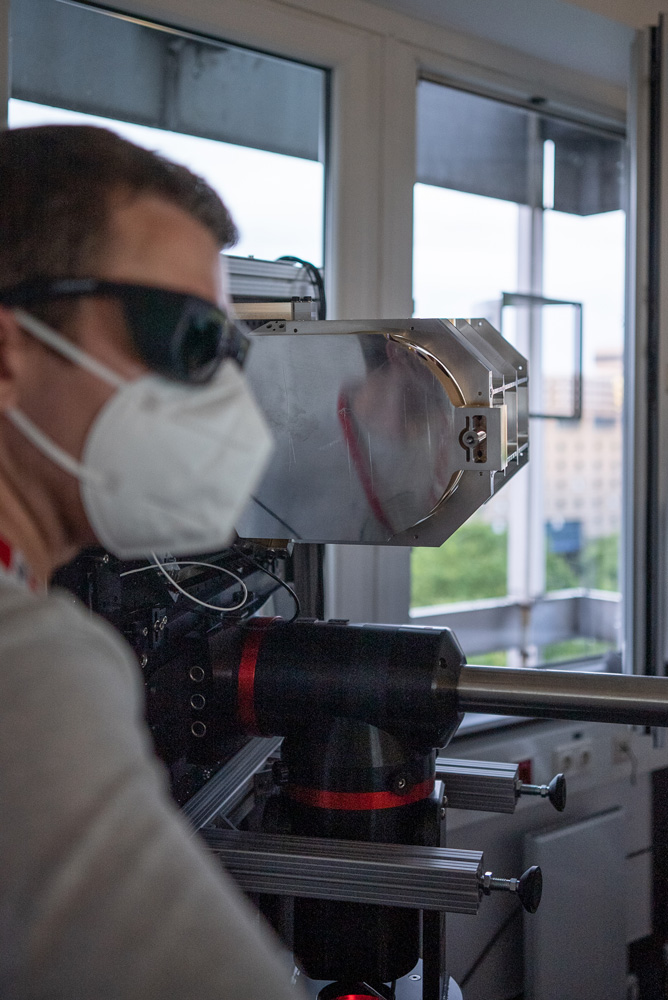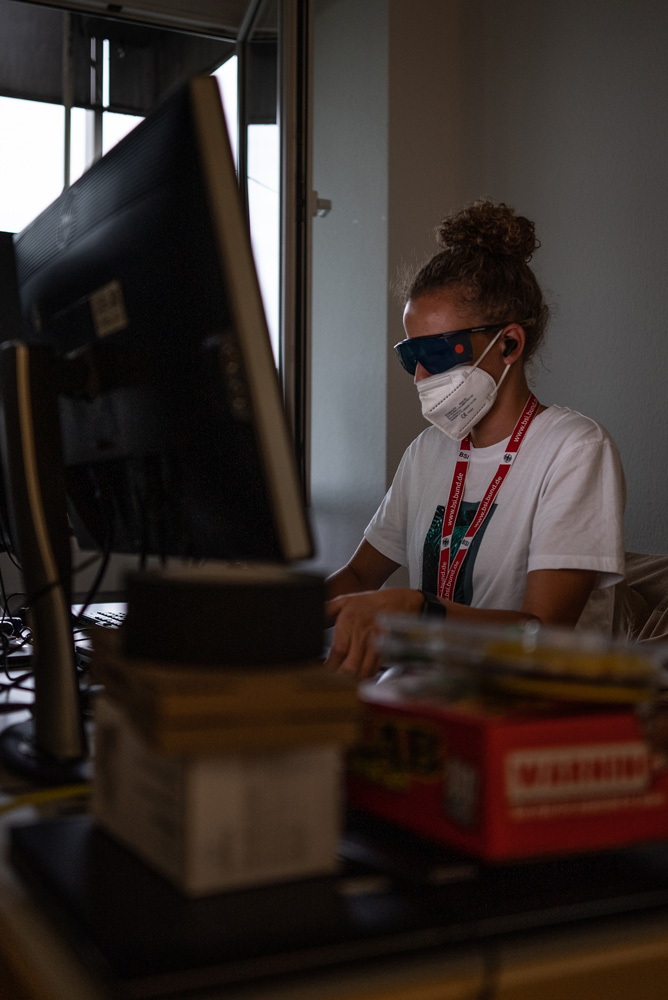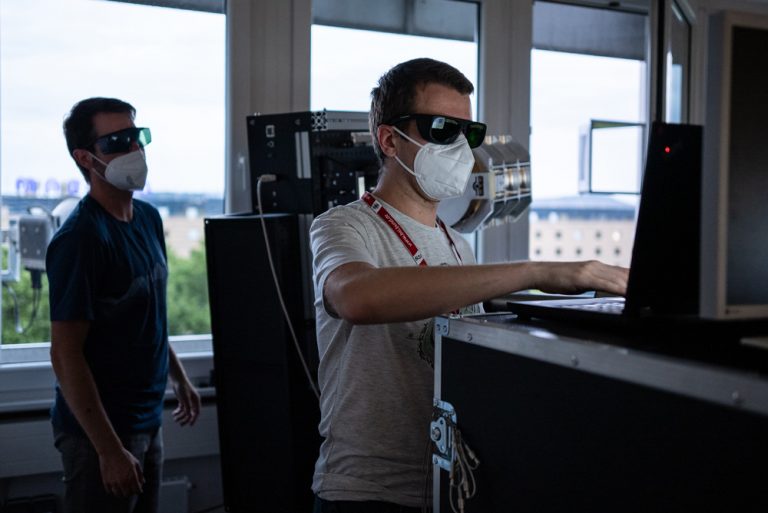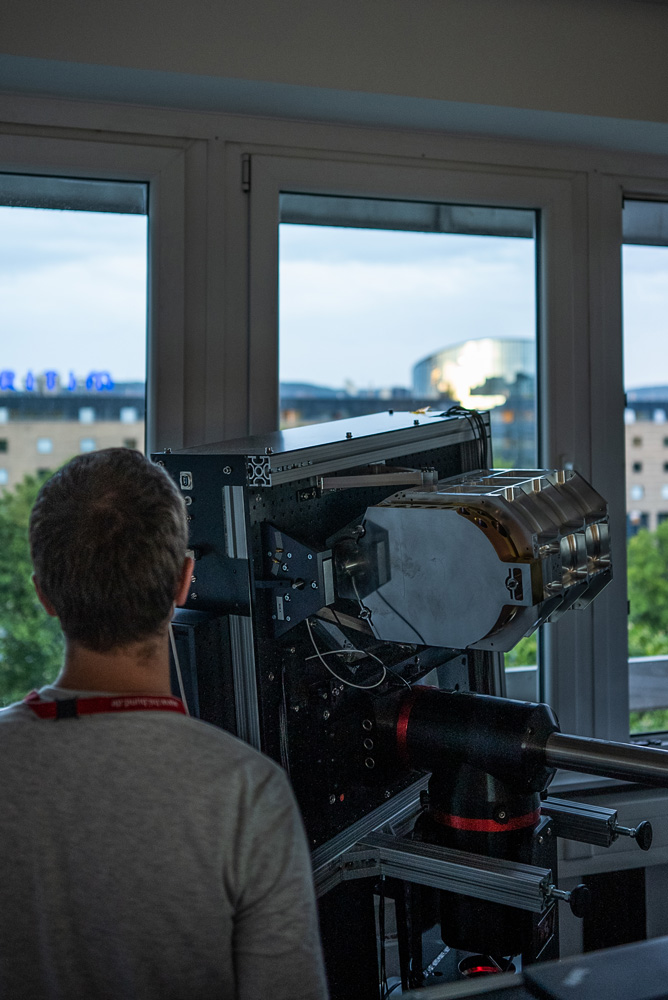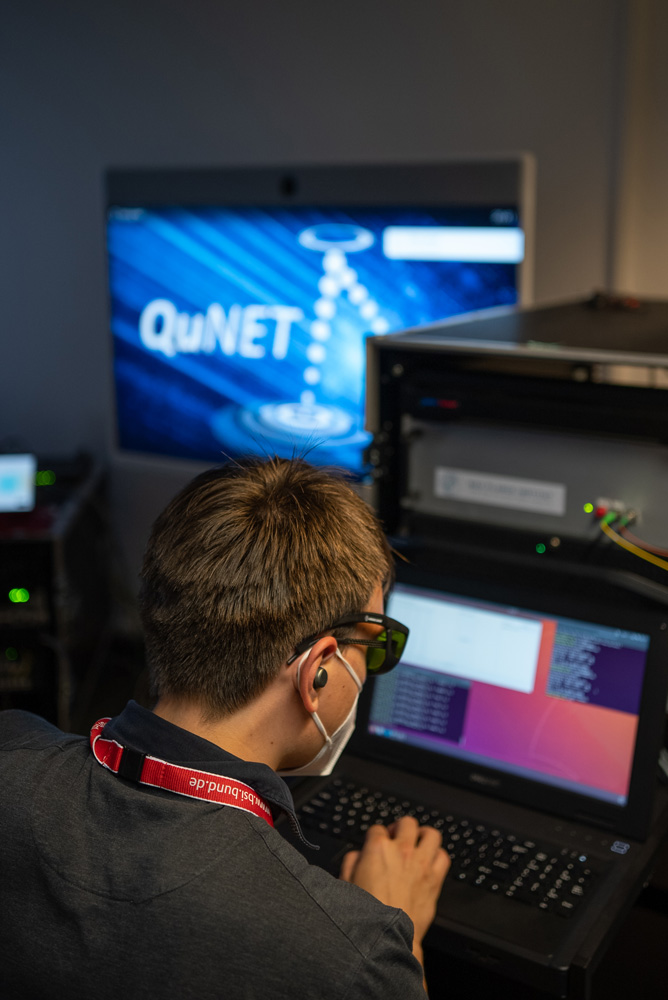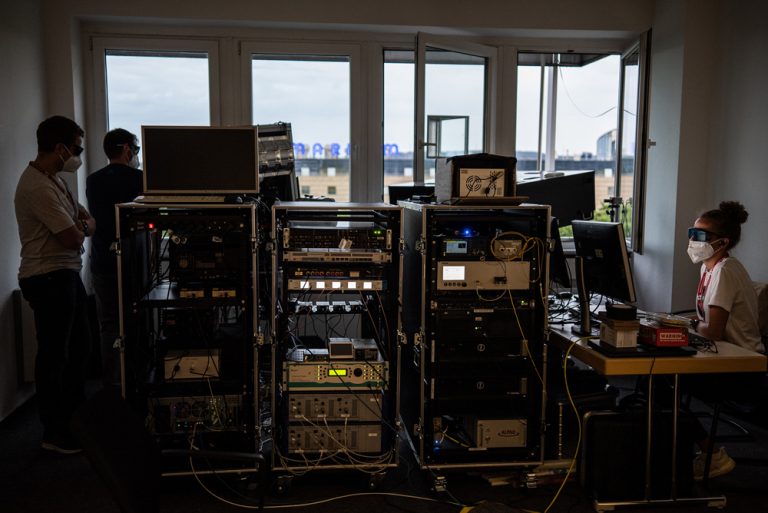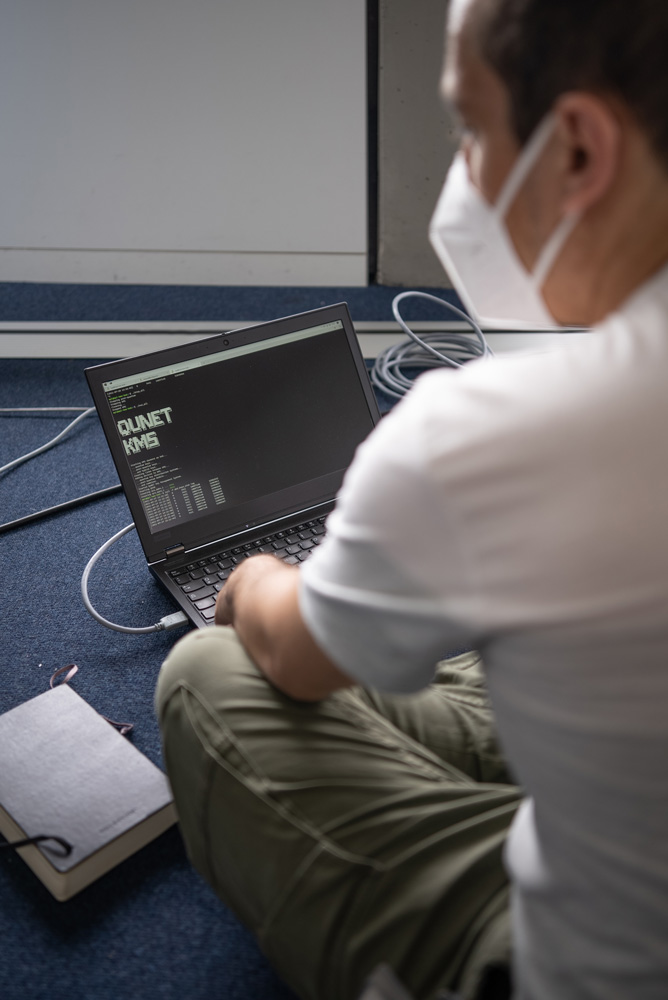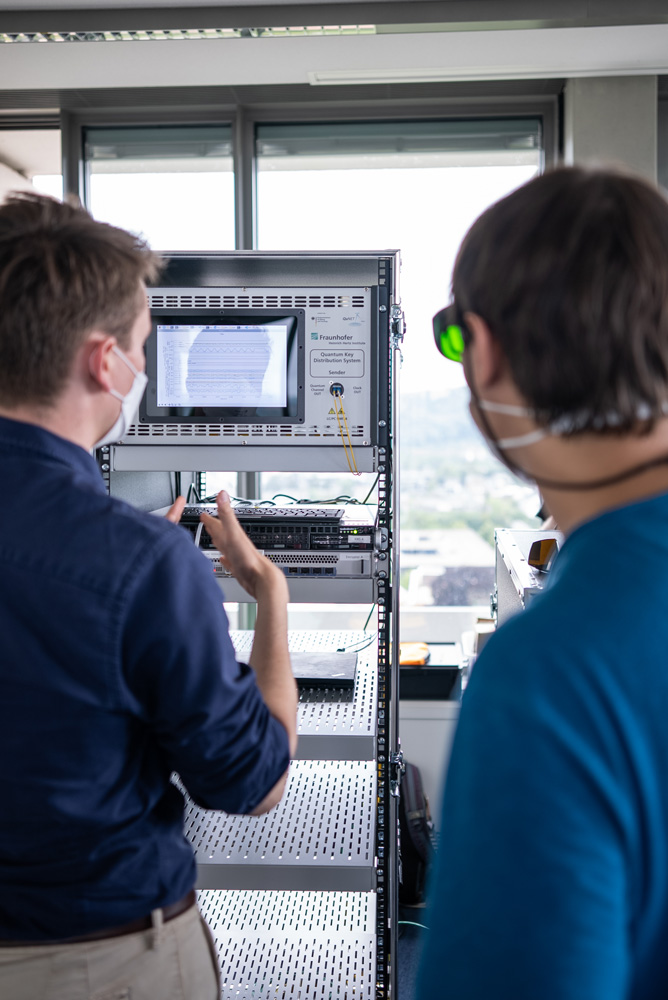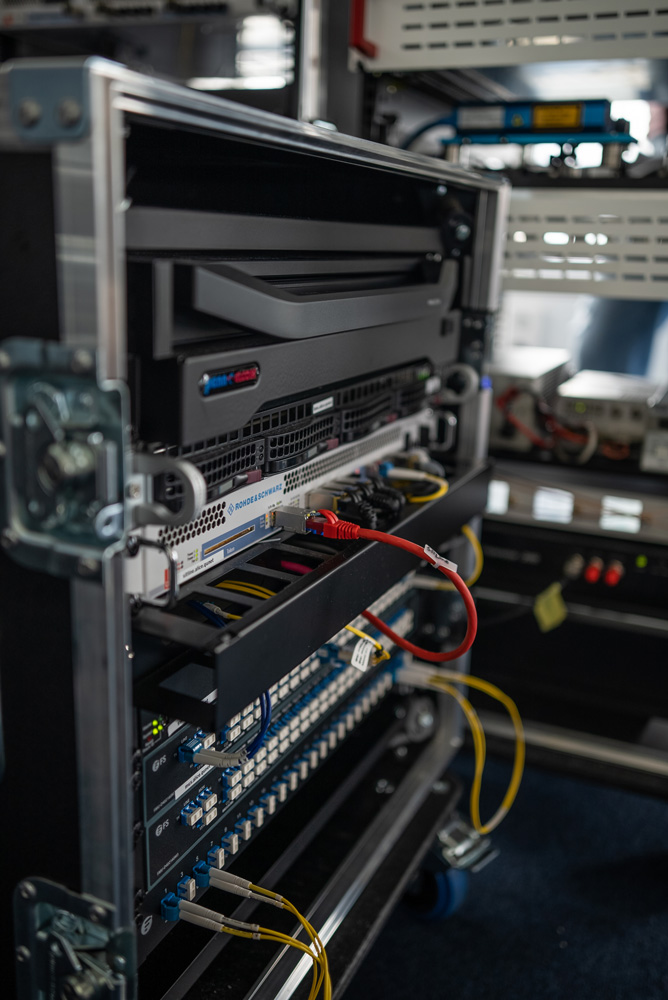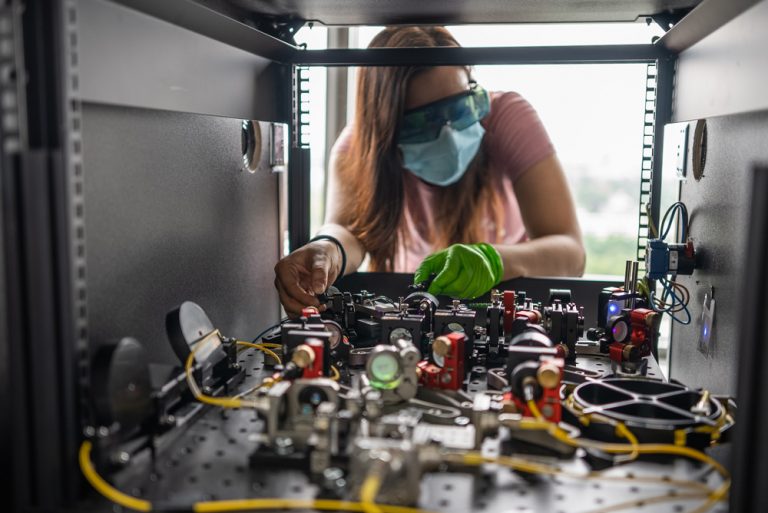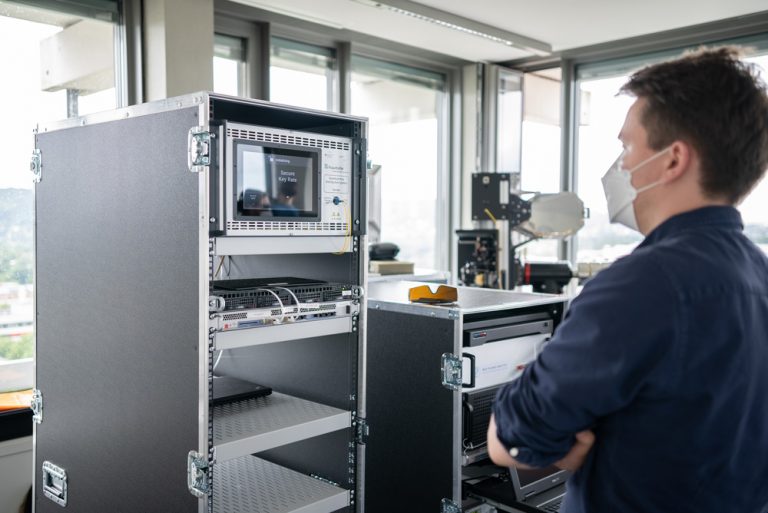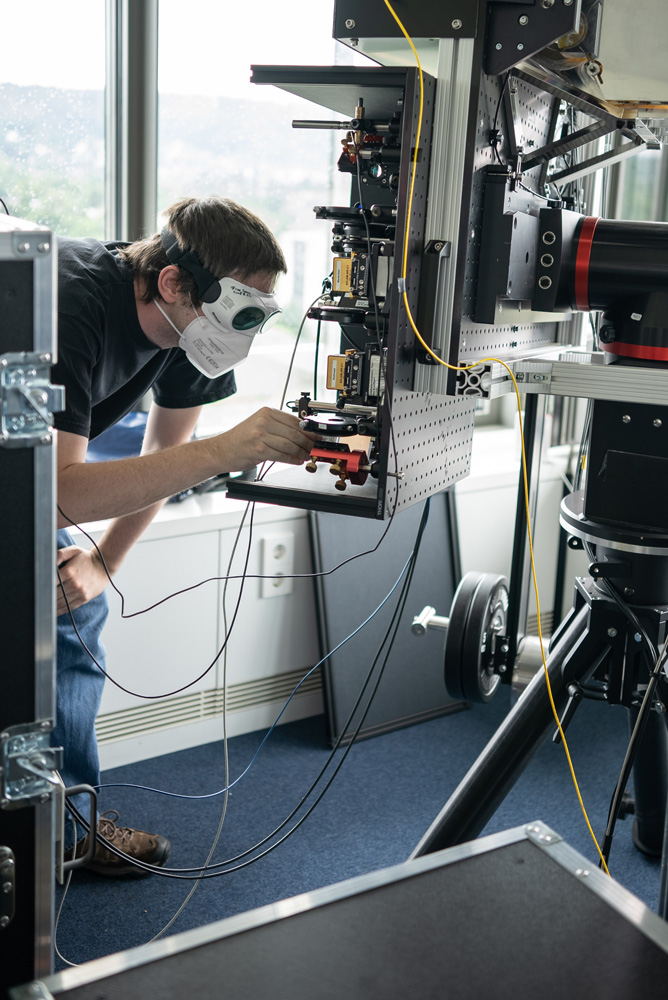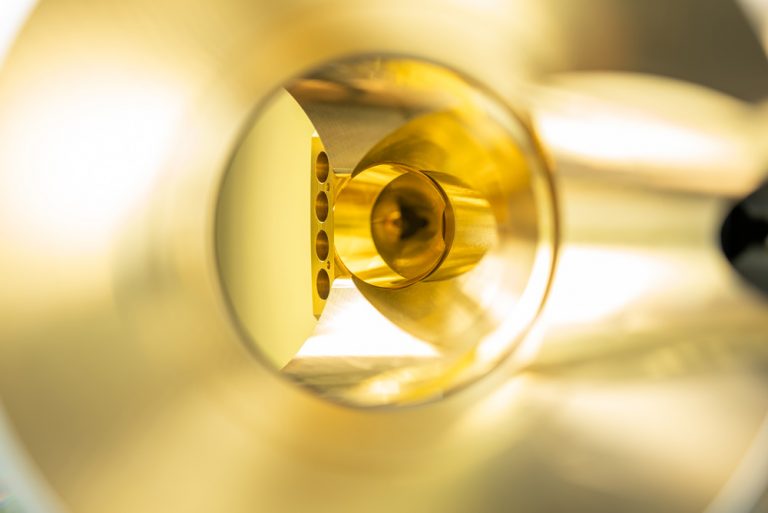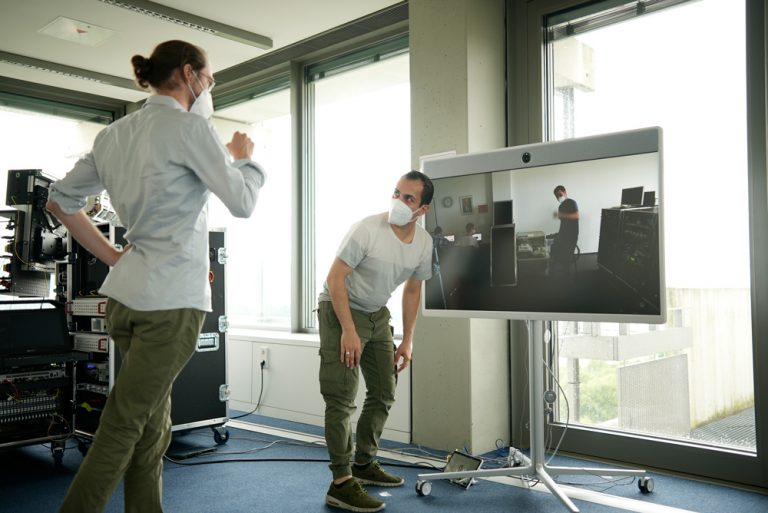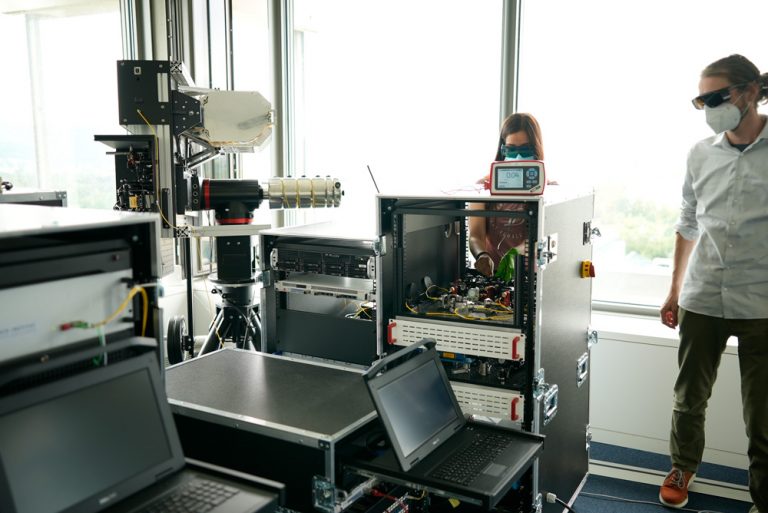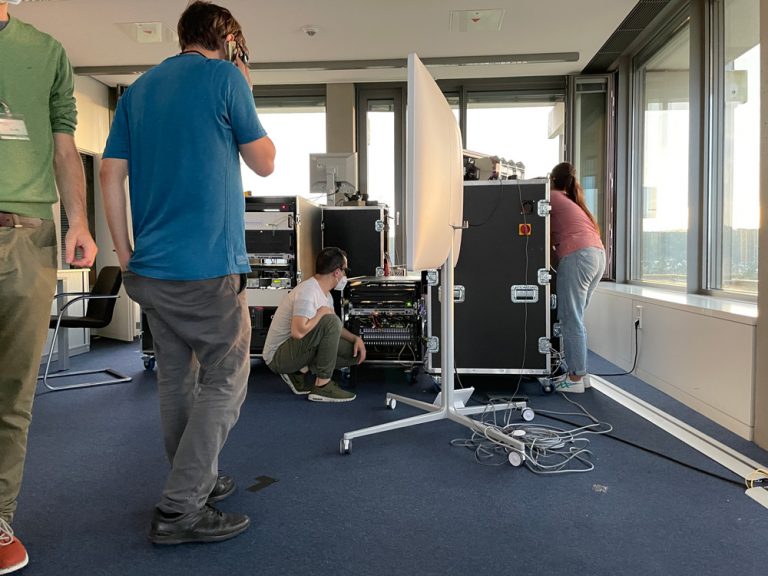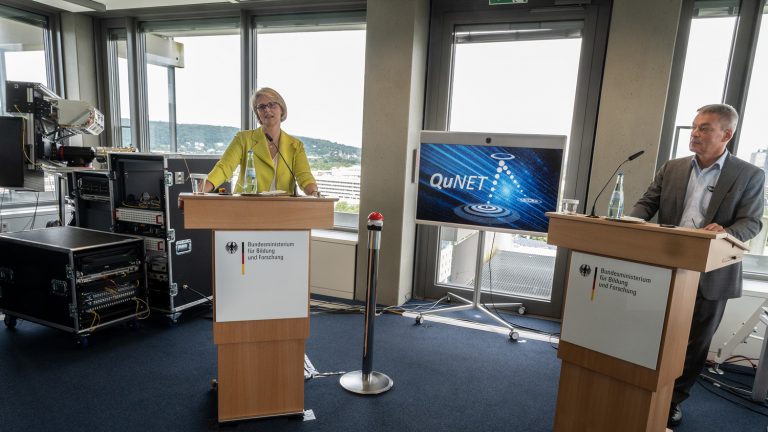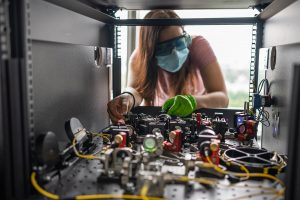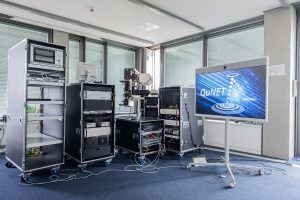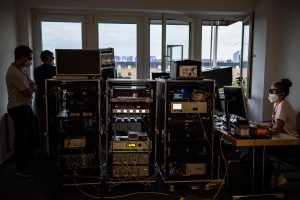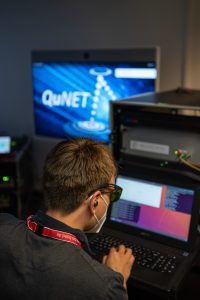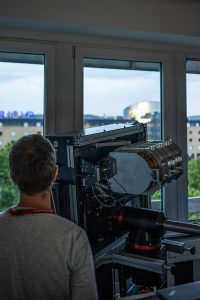First quantum-secured video conference between two federal authorities
QuNET initiative demonstrates highly secure and practical quantum communication
It was a foretaste of the communication of the future – or rather: the “data security” of the future. Because when Federal Research Minister Anja Karliczek hosted a video conference with the Federal Office for Information Security (BSI) today, everything was apparently the same, at least for outsiders. Together with Andreas Könen, Head of Department CI “Cyber and IT Security” at the Federal Ministry of the Interior, Building and Community (BMI) and BSI Vice President Dr Gerhard Schabhüser, the Minister spoke via video stream.
This video conference opens a new chapter in the highly secure communication of the future. Because what the eye cannot see: The conversation was not encrypted using conventional methods, but by means of light quanta. The trick here is that if an attacker tries to access the keys used for data transmission, the light particles are manipulated. This can be proven by the sender and receiver, thus preventing an eavesdropping attempt. The proof is based on physical principles. If an eavesdropping attack is detected, the key is discarded and a new one generated. This strategy achieves long-term security of the agreed keys. This represents a new milestone for the confidentiality of data in a digital world.
A new chapter for the highly secure communication of the future
This so-called »Quantum communication« especially against the backdrop of future technological developments: Quantum computers and new algorithms are expected to be able to crack conventional data encryption methods in the future. According to the motto “Store now, decrypt later”, data can already be stored today and read out later, e.g. with the help of more powerful computers.
Data with long-term protection requirements, i.e. data that will still be of great value to hackers in the distant future, is particularly at risk. This includes not only information from governments and authorities, but also company secrets and citizens’ personal health data.
Federal Research Minister Anja Karliczek explained:
»Quantum communication is one of the decisive key technologies in IT security and can equip us for future threat scenarios. This is important because security and sovereignty in the network are prerequisites for a stable democracy. That is why I launched the QuNET initiative two years ago. It is an important driver for the implementation of research results from basic research into quantum communication in systems suitable for everyday use. The aim is to create the basis for an ecosystem of manufacturers and providers of quantum communication solutions in Germany with the work of QuNET and the other projects in the field of quantum communication funded by the Federal Ministry of Education and Research. This will enable us to bring innovative technologies and components into widespread use in a timely manner.«
In order to protect the privacy of citizens, states and companies in the future, there is already a great need for action today. This is not just about developing new and highly secure communication systems based on quantum expertise, but also about finding ways to integrate this new technology into existing IT infrastructures (e.g. fibre optic cables) and taking established cryptographic processes into account. Long distances also pose a particular challenge. Satellites can play a key role here.
Long-term data security through quantum encryption
The QuNET initiative aims to enable long-term data security. Towards this goal, researchers from all participating institutes have now realised the first quantum-based video conference between the BMBF and the BSI in Bonn. The QuNET work focusses on the so-called “quantum key exchange”, also known as QKD (short for “quantum key distribution”). QKD enables the exchange of symmetric keys whose security can be quantified. The BSI is supporting the QuNET initiative and is preparing accompanying and independent test criteria in international cooperation.
At the end of last year, the research organisations involved in the initiative – the Fraunhofer-Gesellschaft, the Max Planck Society and the German Aerospace Centre (DLR) – presented important foundations for modern and secure communication standards. The scientists have further developed the overall architecture for systems for quantum-safe communication, as well as possibilities for exchanging quantum keys over long, medium and short distances using free-beam and fibre systems.
A new chapter for the highly secure communication of the future
Start: Autumn 2019
Duration: 7 years
Funding organisation: Federal Ministry of Education and Research
Volume: 125 million euros of funding planned
Participating institutes: Fraunhofer Institute for Applied Optics and Precision Engineering IOF, Fraunhofer Heinrich Hertz Institute (HHI), Max Planck Institute for the Science of Light (MPL), DLR Institute of Communications and Navigation
